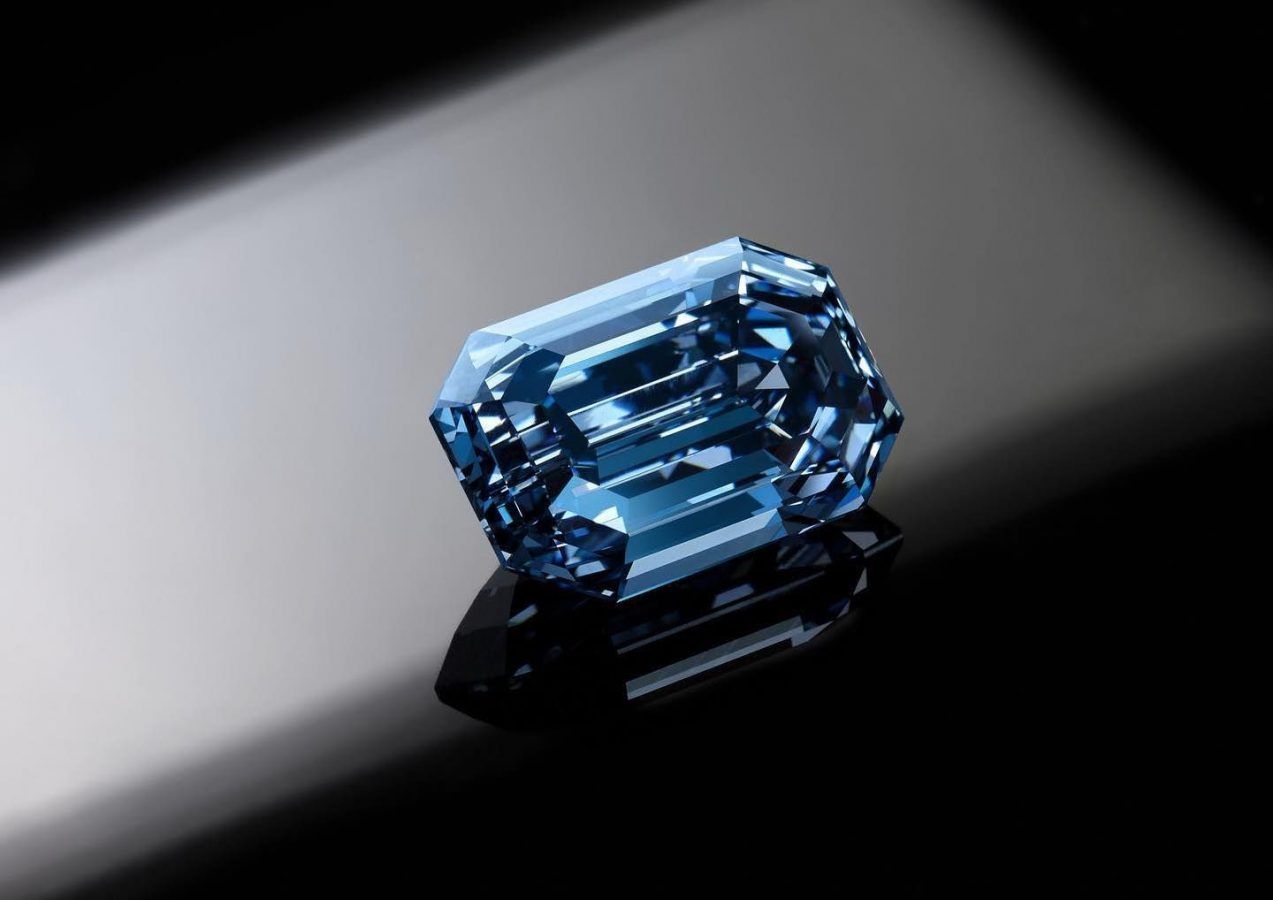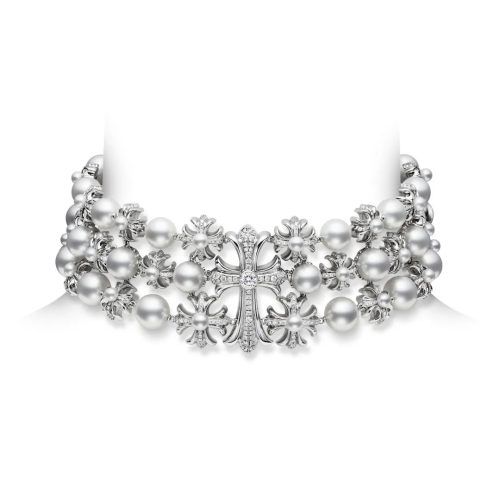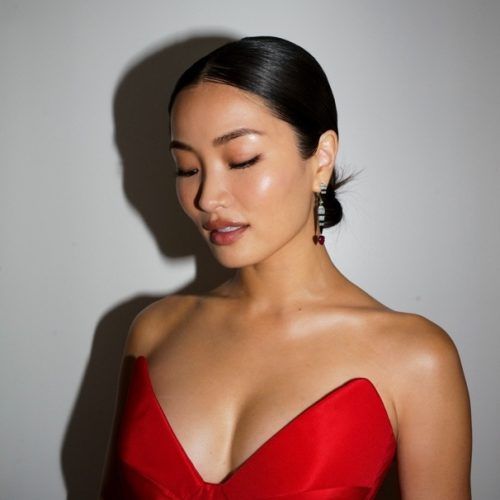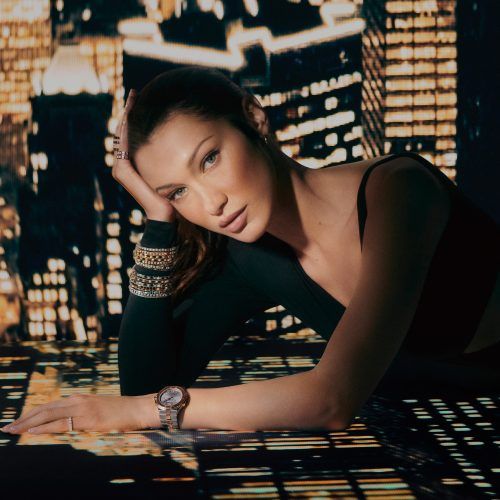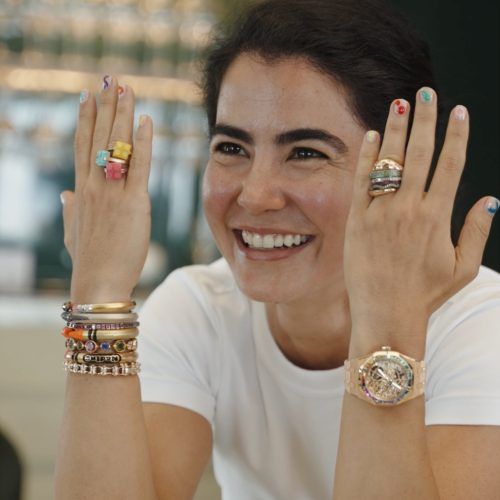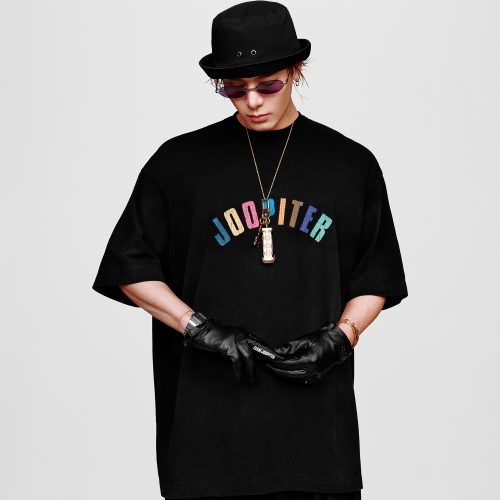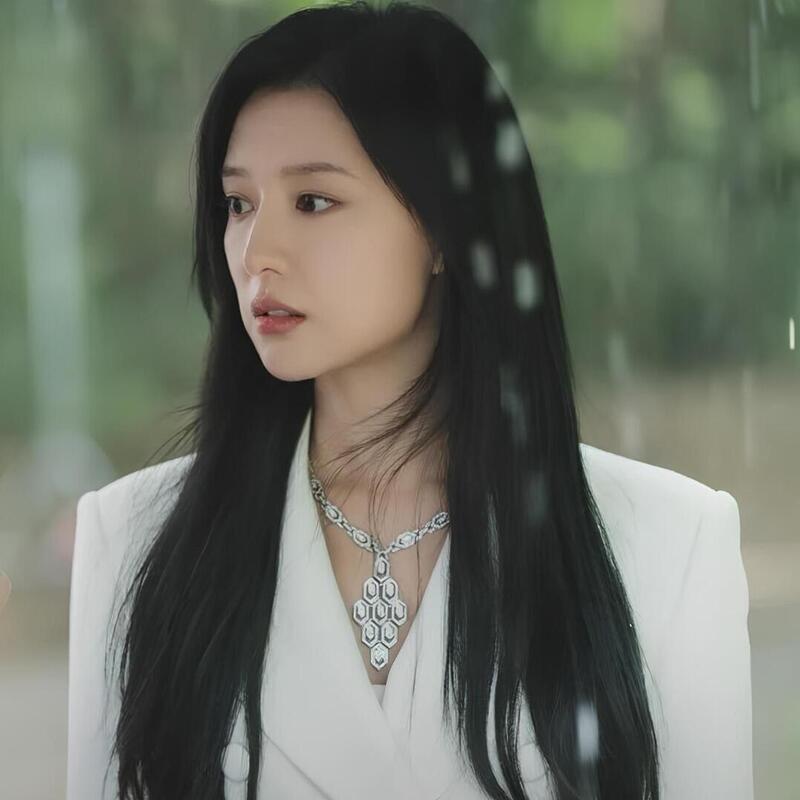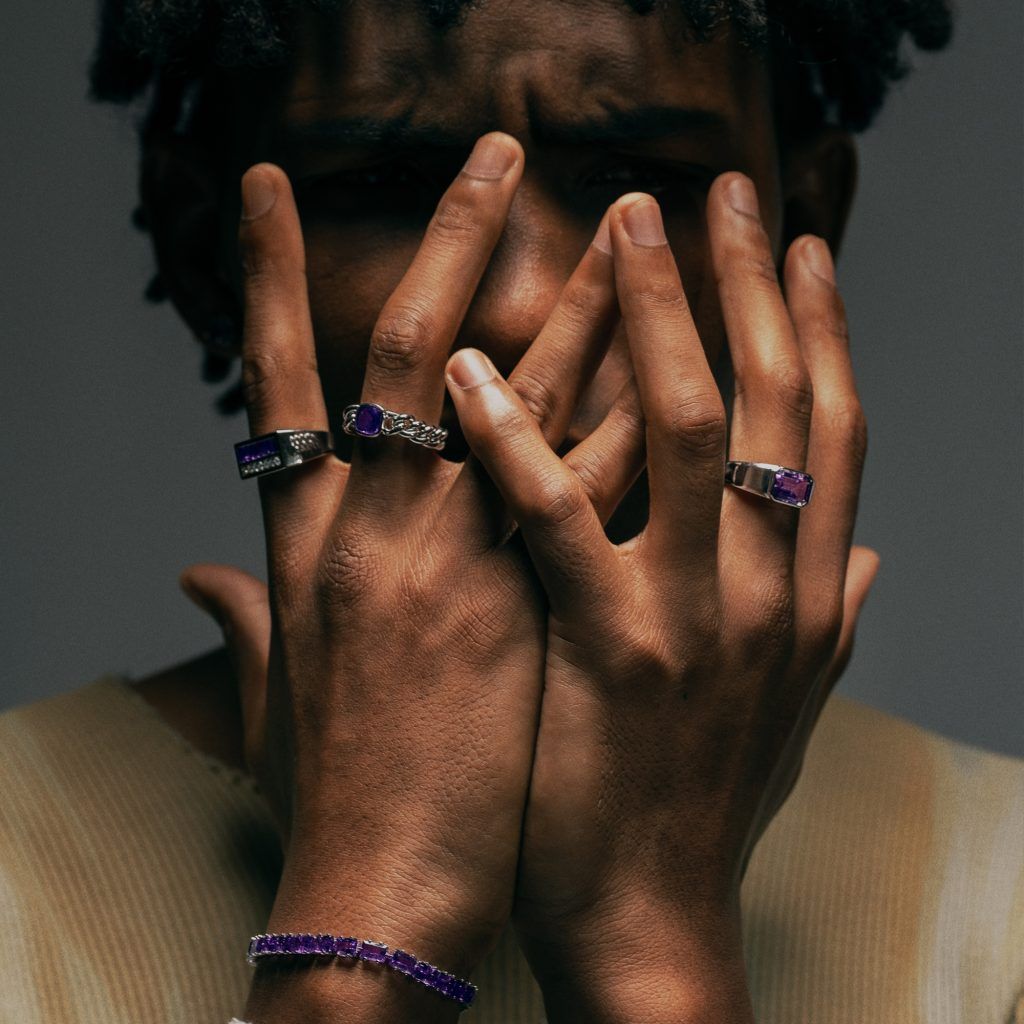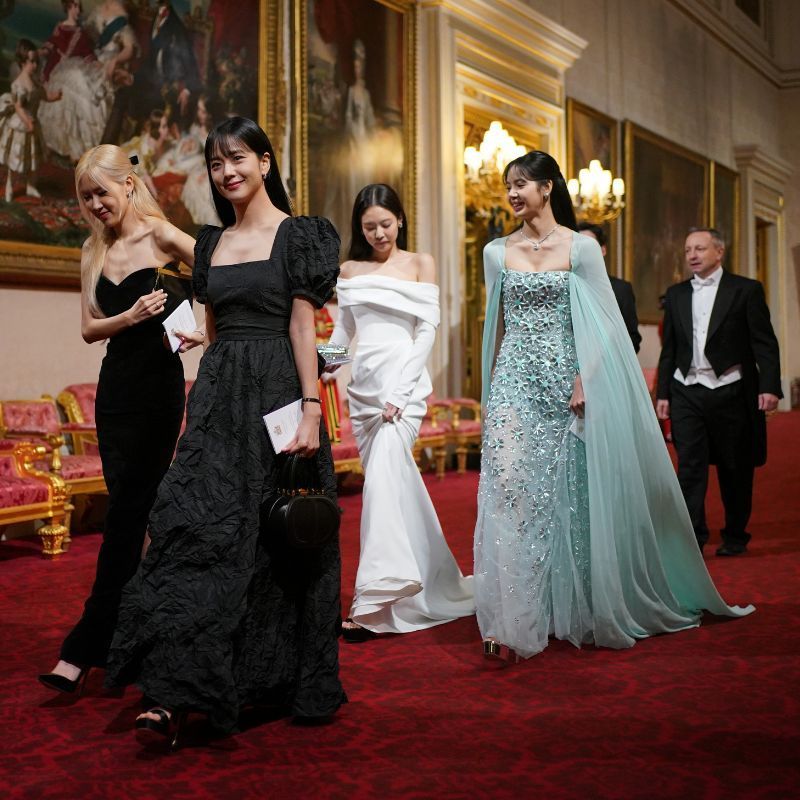“A Diamond is Forever,” wrote advertising icon Frances Gerety for De Beers in 1947 and established the greatest statement ever written to describe the significance of the world’s most desired gem. It is no surprise that diamonds comprise the most expensive gems in history, prized for their beauty, shine and rarity.
Like any precious gemstone, the price of a diamond depends on certain factors relating to its weight and clarity, among other things. Diamonds are valued and rated on a combination of four Cs — carat, cut, colour and clarity. Carat is the weight of a diamond. One carat is equivalent to 0.2 grams. Cut is the shape of a diamond of which broadly, the highest grade is termed ‘Ideal’ or ‘Excellent.’
Colour ranges from brilliant white to shades of yellow, pink, red, blue and green. Colourless diamonds are the rarest and are the most expensive.
The independent non-profit organisation Gemological Institute of America (GIS) and the retail jewellers’ trade association American Gem Society (AGS) are the two foremost authorities on diamond grading and certification. Their rating helps determine the price of a diamond available for sale.
Although some of the world’s most expensive diamonds, especially pink and blue, have fetched record prices at auctions, a handful are considered priceless because they may never have been sold or evaluated in modern times.
The most expensive diamonds of all time
Koh-i-Noor
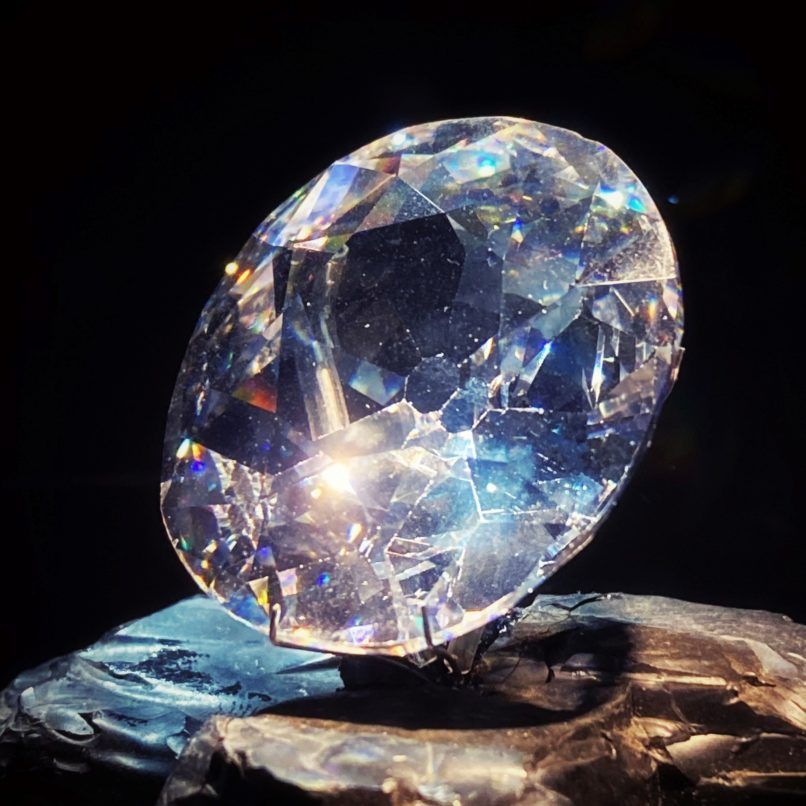
Koh-I-Noor means ‘Mountain of Light’, and the gem is considered the world’s most famous priceless diamond. Originally weighing 793 carats, it has been cut and polished over centuries into the present form of a 105.6-carat gem.
It is widely believed that the diamond was mined during the reign of the Kakatiya dynasty (11th to 12th century) in India’s Golconda region. Later, it came into the possession of the Mughals. When Nader Shah of Persia sacked Delhi after defeating Mughal emperor Muhammad Shah, he took the diamond along with the Peacock Throne, in which it was encrusted.
In 1813, the diamond came into the possession of Sikh ruler Maharaja Ranjit Singh before eventually falling into the hands of the British.
Since the 19th century, the diamond has remained in the possession of the British royal family. It adorns the crown belonging to the late Queen Elizabeth, the Queen Mother. The Koh-i-Noor was last seen in public in 2002 when the crown was placed atop the coffin of the Queen Mother.
The Cullinan
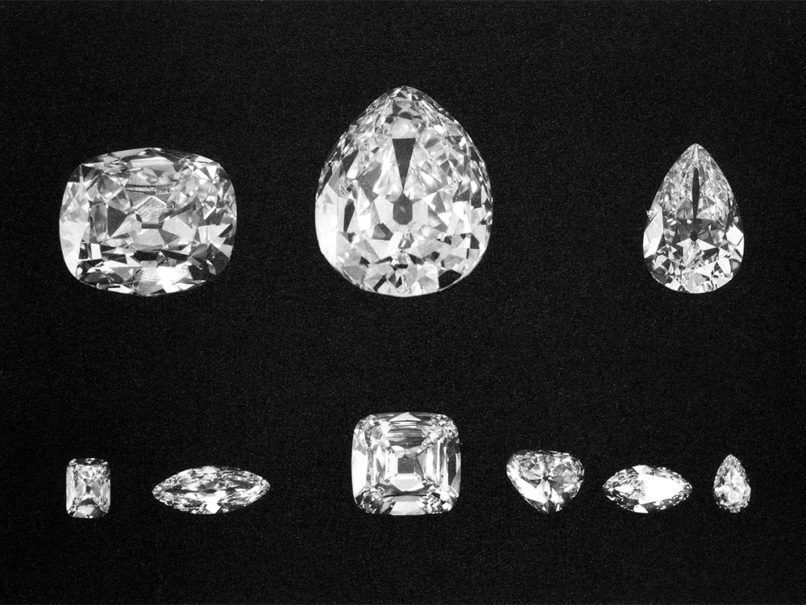
Mined in South Africa in 1905, the Cullinan diamond originally weighed 3,106 carats — the largest rough diamond in history. However, it is now a collection of 105 gems of different cuts and weights.
The Cullinan, one of the most magnificent diamonds in the world, was named after Thomas Cullinan, the chairman of the mine. The worth of the stone would be an estimated USD 400 million in the current market.
There are nine large pieces of the diamond, totalling approximately 1,055 carats, besides other smaller cuts.
The biggest piece is known as Cullinan I and weighs 530.20 carats, making it the largest clear cut diamond in the world. The Cullinan I is mounted on the spectre of the British monarch, King Charles III.
The Cullinan II, weighing 317.40 carats, is part of the Imperial State Crown. These are also referred to as the ‘Star of Africa’ and ‘Lesser Star of Africa’, respectively.
Cullinans III, IV and V are part of the late Queen Elizabeth II’s pendant brooch. The remaining four are also part of the Queen’s personal jewellery.
The Hope
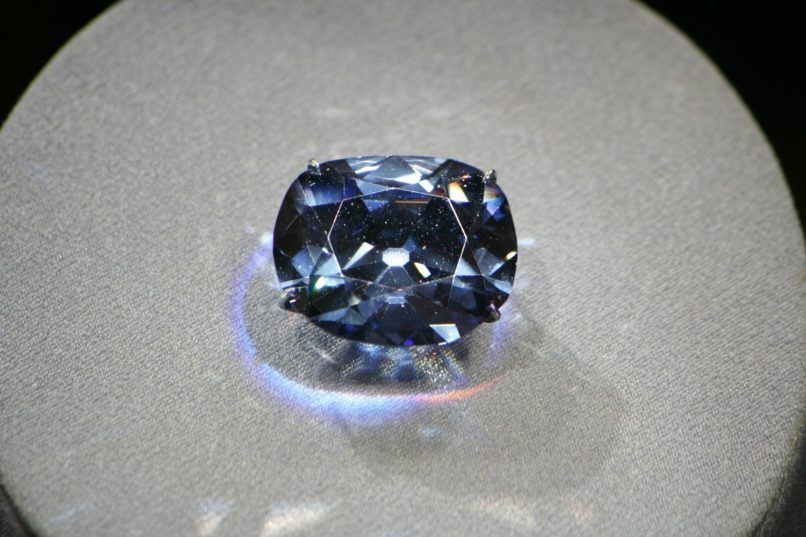
Jean Baptiste Tavernier, a French traveller, purchased a 112-carat diamond, which eventually came to be known as the Hope. It is believed that it was found in the same Golconda mine from where the Koh-i-Noor came. In his records, Tavernier described that the diamond had a “beautiful violet” colour.
Tavernier sold it to King Louis XIV. Over the years, it came to be recognised as the “Blue Diamond of the Crown”. However, the diamond was stolen in 1792 and emerged in London in 1812. After changing several hands, including King George IV, and crossing the Atlantic Ocean, the diamond ended up in the Smithsonian Institution in 1958.
The Hope diamond has remained in the Institution’s collection ever since and has been publicly displayed outside of Smithsonian only four times. While the weight of the diamond is 45 carats, its estimated worth is USD 200-350 million.
De Beers Centenary
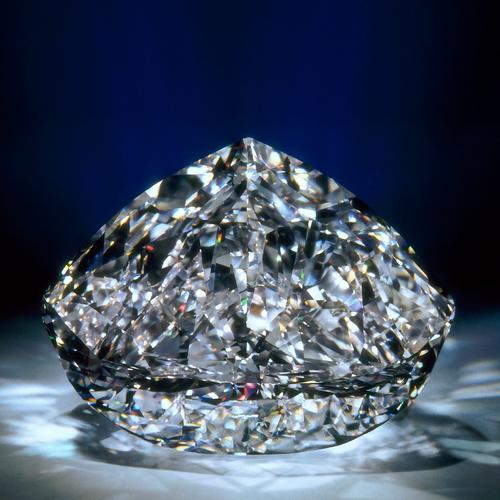
Even though the De Beers Centenary Diamond was discovered in the Premier Mine in South Africa in 1986, its existence was announced two years later at the 100th anniversary of De Beers in Kimberley. This is how it got its name — Centenary.
Weighing 599 carats, it was one of the world’s largest top-colour diamonds. The Centenary was then cut down into a heart-shaped gem of 273.85 carats with 247 perfectly aligned facets. The GIA certified the diamond’s colour as D — the highest rating for colourless diamonds — and internally and externally flawless in clarity.
At the time of its unveiling in 1991, it was the largest known colourless modern-cut diamond. The Centenary has never been valuated, but it was insured for USD 100 million before it was put on display in 1991. No one knows who owns the diamond and therefore, its current location remains a mystery.
CTF Pink Star diamond
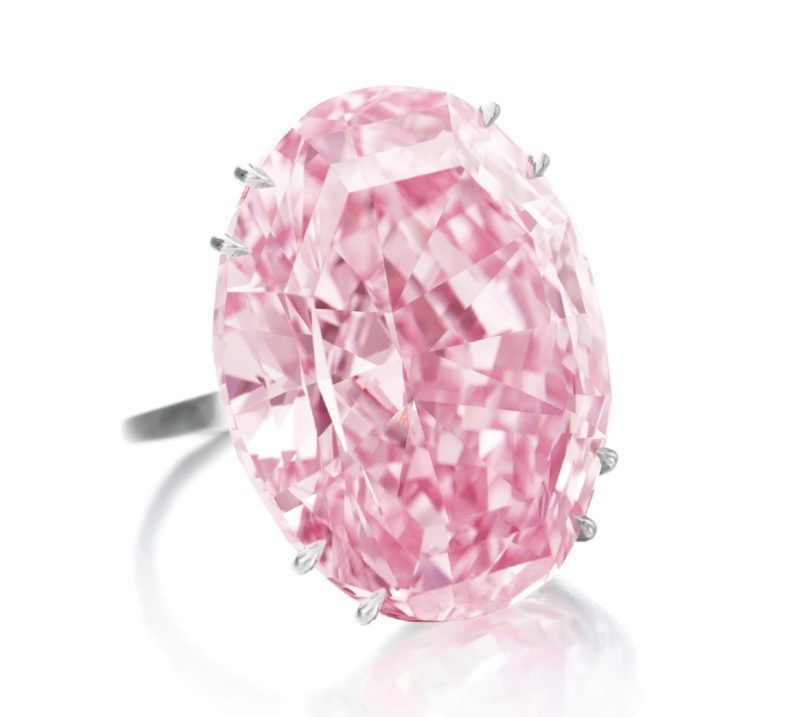
Oval in shape, the internally flawless gem is the world’s largest vivid pink diamond. Though the exact location is unknown, it was mined by De Beers in Africa in 1999. The stone weighed 132.5 carats at the time. For over two years, experts from The Steinmetz Group cut and polished it into a 59.60-carat diamond.
It was first displayed in public in Monaco in 2003. At the time, it was known as the Steinmetz Pink diamond.
In April 2017, the Pink Star was sold for USD 71.2 million at a Sotheby’s auction in Hong Kong to city-based jewellery company Chow Tai Fook. The owner of the jewellery, Hong Kong billionaire Henry Cheng, renamed it CTF Pink Star in honour of his father.
To date, it is the most expensive diamond ever sold at an auction.
Williamson Pink Star
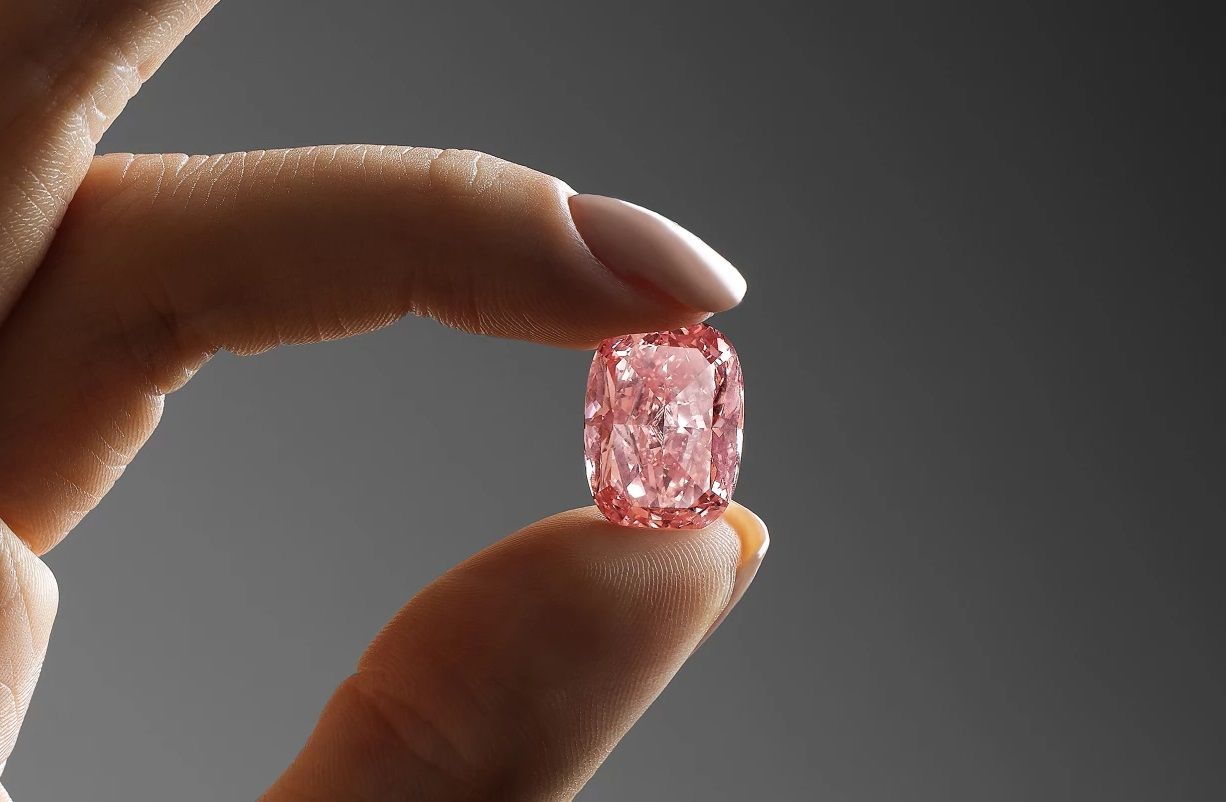
On 7 October 2022, the Williamson Pink Star diamond was sold at a Sotheby’s auction in Hong Kong for USD 57.7 million. The 11.15-carat cushion-shaped diamond, thus, became the second most valuable jewel or gemstone ever sold at auction.
The per-carat price of the diamond was more than USD 5 million, making it the most expensive auctioned diamond by price-per-carat.
The diamond was found in the Williamson Mine in Tanzania, after which it is named. According to the auction house, the mine produced ‘bubblegum’ pink diamonds over the years. Its most famous gemstone is perhaps the 23.6-carat Williamson Pink Diamond owned by the late Queen Elizabeth II, who passed away on 8 September 2022.
Oppenheimer Blue diamond
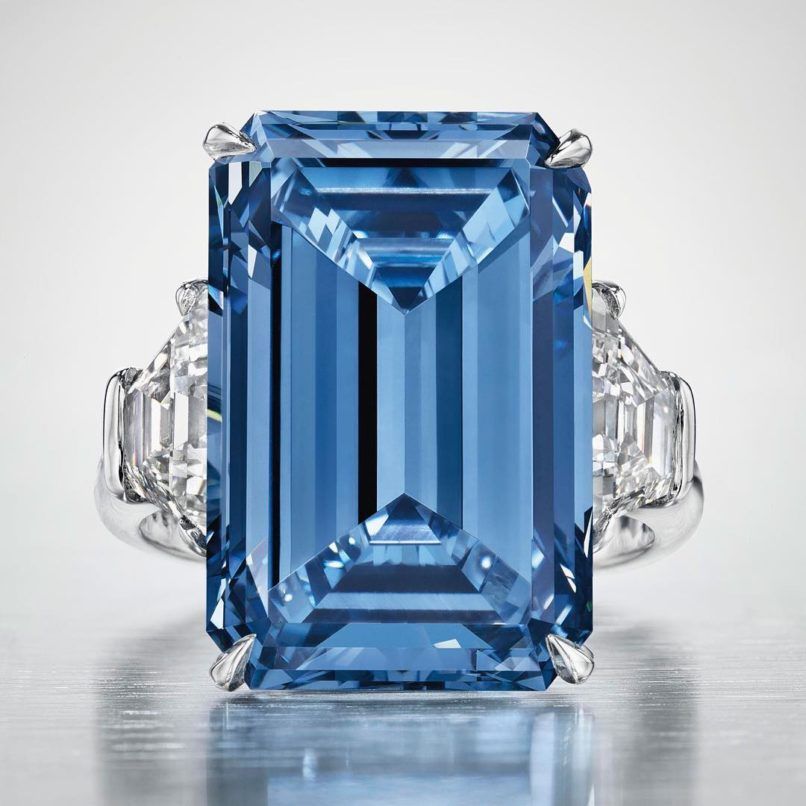
Before the CTF Pink Star, the Oppenheimer Blue was the costliest diamond to have been sold at an auction when it went under the hammer for USD 57.5 million at Christie’s Geneva Magnificent Jewels sale in 2016.
The 14.62-carat diamond, which is graded as a fancy vivid blue diamond, was named after its owner Sir Philip Oppenheimer, whose family once controlled the De Beers Mining Company.
It is an extremely rare diamond because only 10 percent of all blue diamonds are larger than a carat. The emerald-cut diamond has a VVS1 clarity grade — a grade below internally flawless.
De Beers Blue
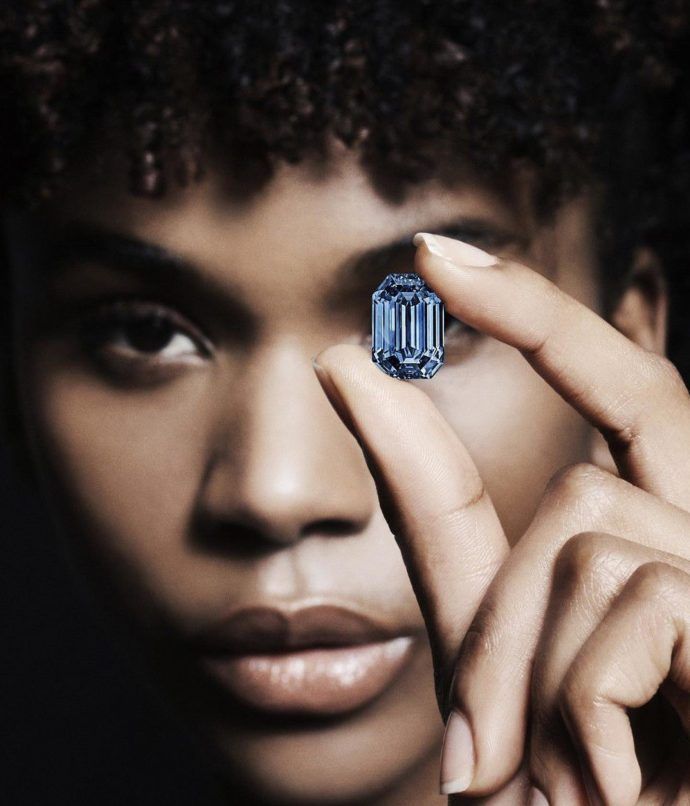
In April 2022, The De Beers Blue was auctioned at Sotheby’s Hong Kong. Fetching a price of more than USD 57.4 million, it is one of the most expensive diamonds in the world ever sold at an auction. The price at which it was sold was around USD 9 million more than its estimate.
According to Sotheby’s, the diamond weighing 15.10 carat is the largest vivid blue diamond ever to appear at auction. Only five blue diamonds of over 10 carats have previously been sold at auctions.
It also has the distinction of being the largest internally flawless step-cut vivid blue diamond ever graded by the GIA. The diamond was cut from an exceptional rough stone discovered in South Africa’s historic Cullinan mine in April 2021.
Blue Moon of Josephine
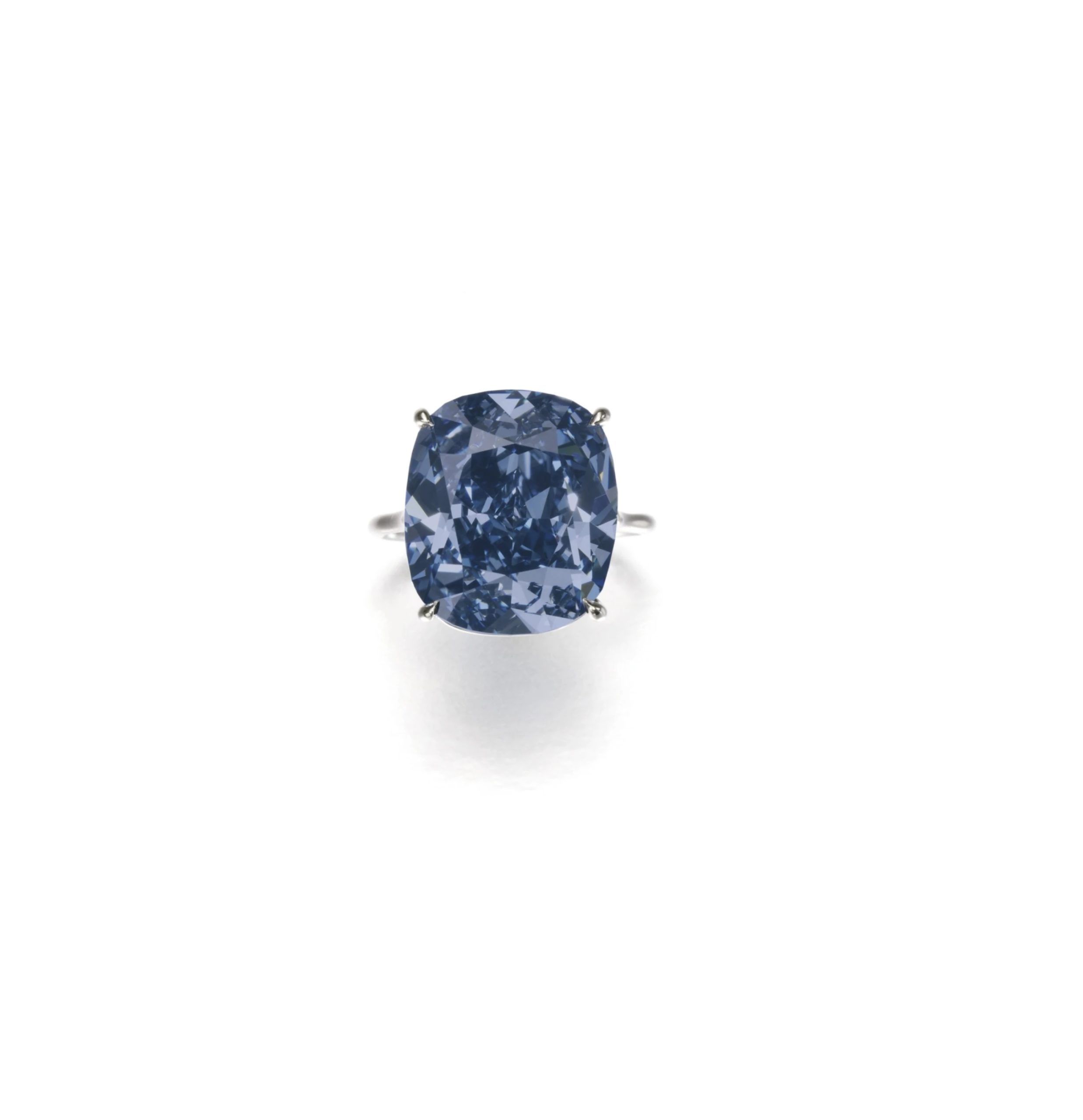
In November 2015, the vivid blue diamond sold for USD 48.4 million at a Sotheby’s auction in Hong Kong. At the time, the 12.03-carat diamond was the costliest ever to have been sold at an auction.
The Blue Moon diamond, as was known at the time, was bought by billionaire Joseph Lau for his daughter. He renamed it ‘Blue Moon of Josephine’ after her.
In 2014, the diamond was discovered as a 29.6-carat rough cut in the Cullinan mine by Petra Diamonds in South Africa. Petra sold it to Cora International, which gave the diamond its present shape.
Graff Pink
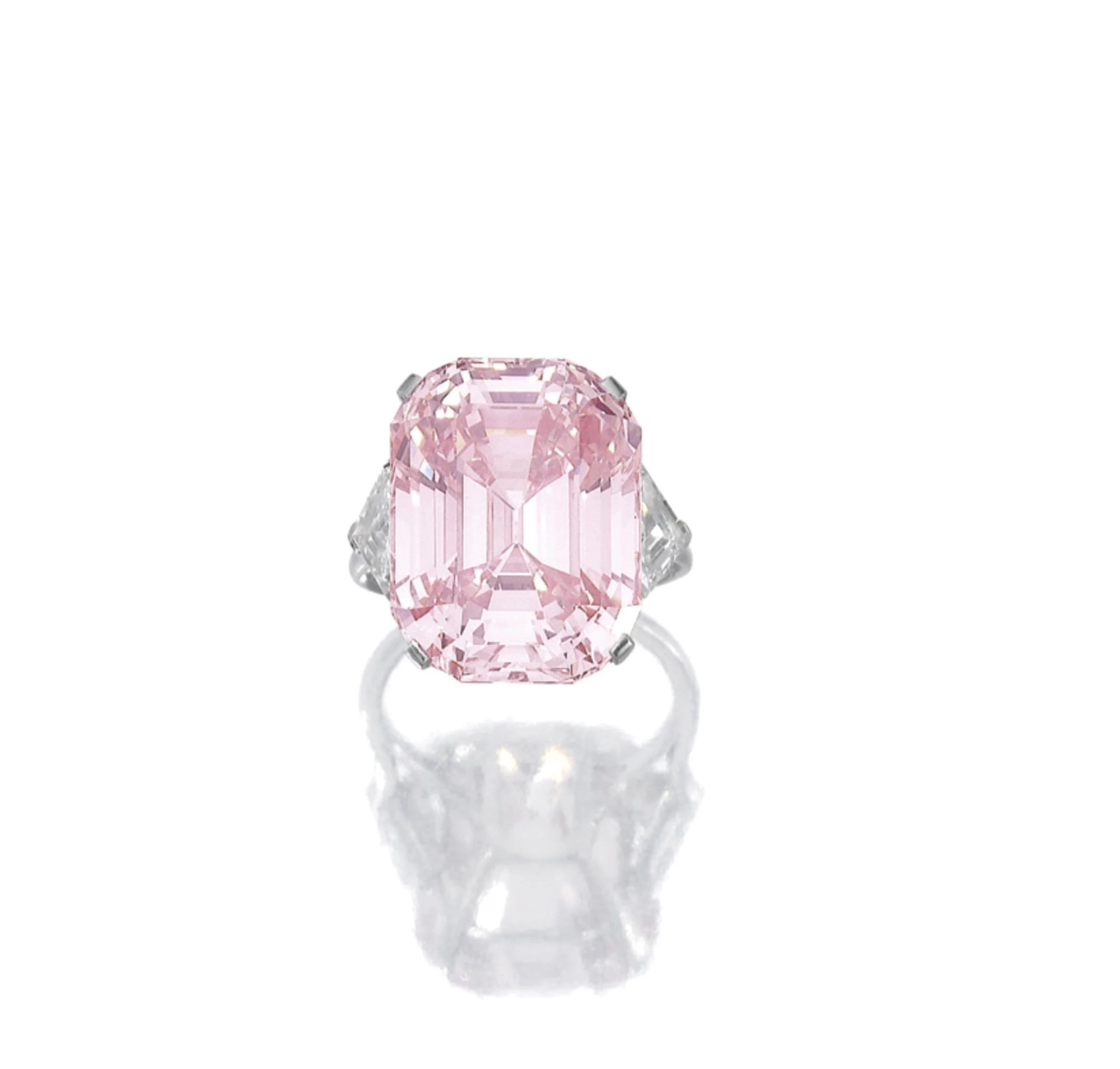
The Graff Pink diamond was last sold for USD 46.2 million at a Sotheby’s auction in 2010, making it the costliest transaction at the time for a diamond at an auction. It gets its name from its current owner — Laurence Graff of Graff Diamonds.
The 24.78-carat Fancy Intense Pink emerald-cut diamond was not seen on the market for 60 years before the sale. After Graff acquired it, his team worked on further enhancing the look of the diamond. As a result, the Graff Pink is now a 23.88 carats Internally Flawless Fancy Vivid Pink diamond. Already rare because of its colour and size, the gem became even rarer.
The history of the diamond is not very clear. Before Graff, its owner was jeweller Harry Winston who sold it in the 1950s to an unknown buyer.
Bleu Royal
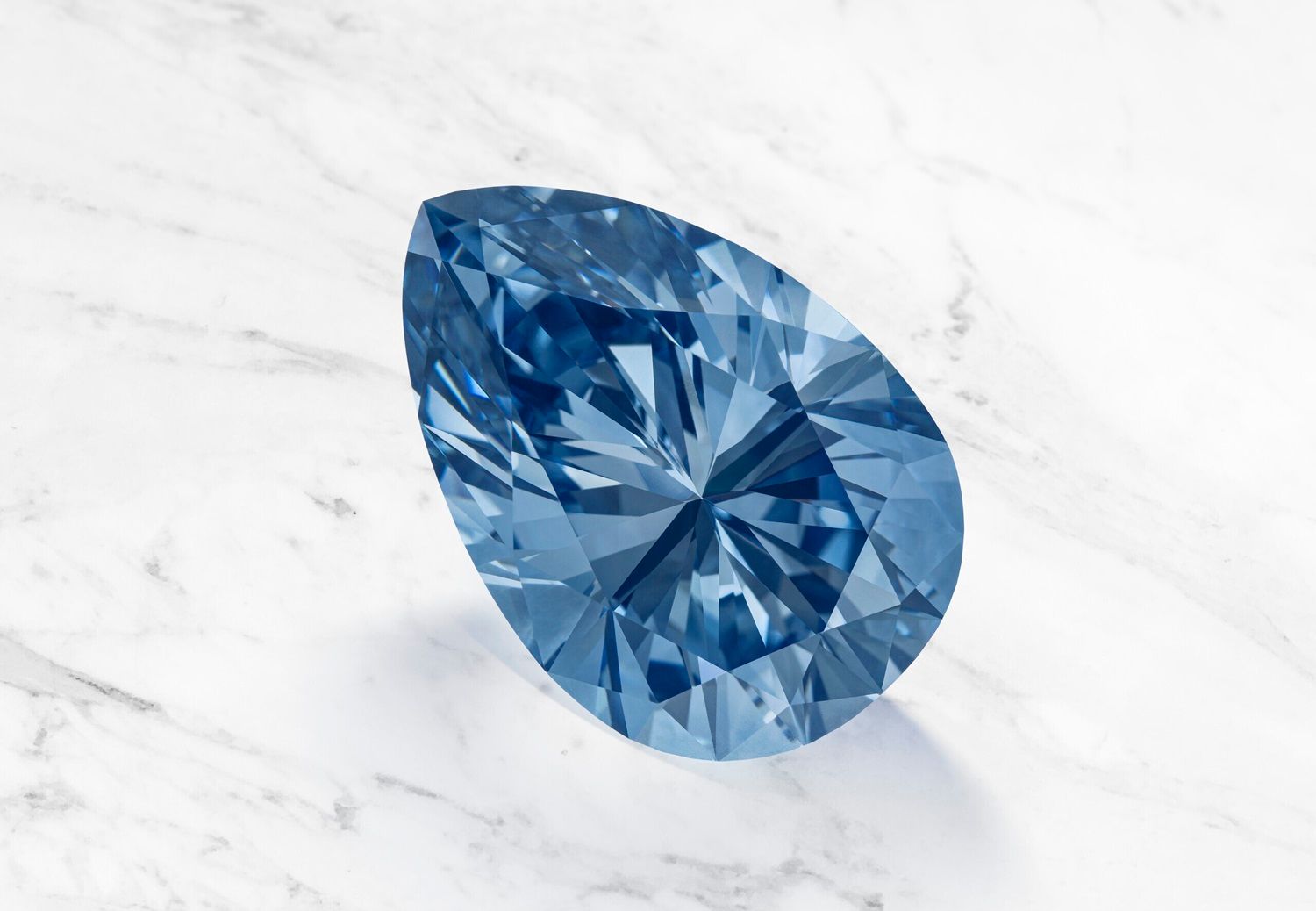
Christie’s in Geneva sold Bleu Royal, the world’s largest internally flawless fancy vivid blue diamond in November 2023 for USD 43.8 million. At 17.6 carats, the diamond was estimated at USD 50 million prior to the sale.
According to Reuters, Max Fawcett, head of Christie’s jewellery department in Geneva, said the diamond was unique because of its deep rich blue colour and its unmodified pear brilliant shape.
The Princie Diamond
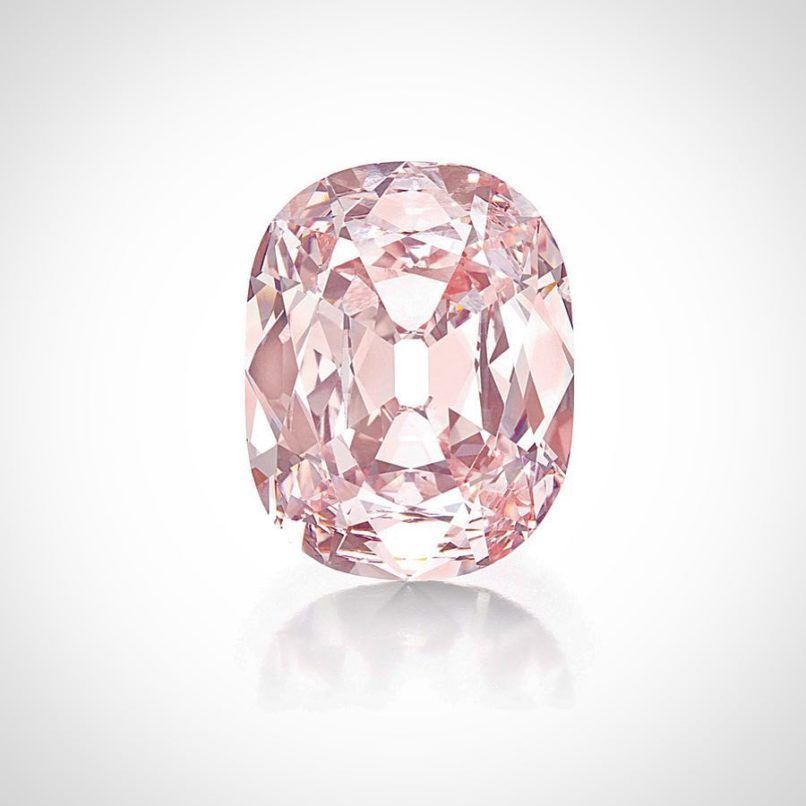
The Princie is one of the world’s best known pink diamonds, and is little surprise that it’s one of the world’s most expensive diamonds. In 2013, it sold at a Christie’s auction in New York City for USD 39.3 million.
Like many other highly valuable diamonds, the 34.65-carat Princie comes from the mines of the Golconda region. According to Christie’s, it was discovered around 300 years ago. One of its owners was the Nizam of Hyderabad, described as the richest man in the world by Time magazine in 1937.
The diamond got its name in honour of the Prince of Baroda, son of Maharani Sita Devi, who attended a party thrown by its last owner Van Cleef & Arpels in Paris.
The diamond’s current owner remains anonymous.
The Orange
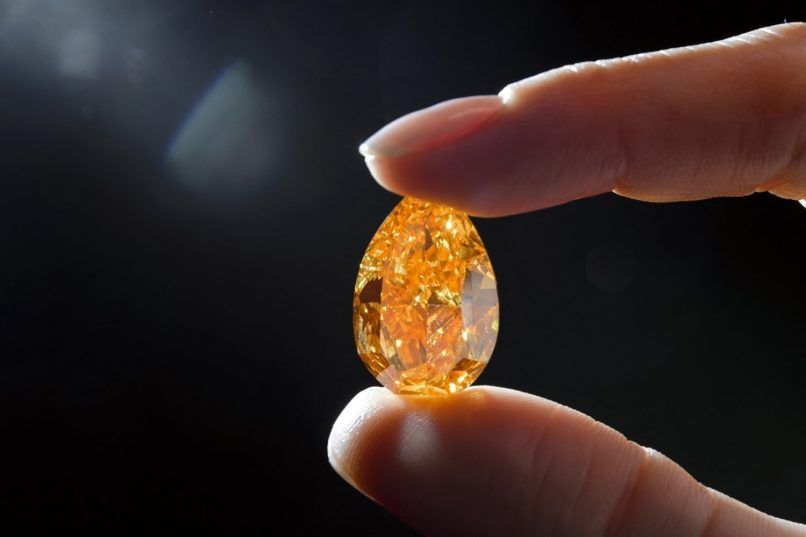
This is the largest fancy vivid orange diamond to have ever been sold at an auction. It was purchased for USD 35.5 million at Christie’s Geneva Magnificent Jewels sale in November 2013.
The 14.82-carat, pear-shaped stone was found in South Africa and was owned by early-20th-century Bolivian industrialist Simón Iturri Patiño, famously known as ‘The Andean Rockefeller’.
At the time of its sale, it set the record for the price-per-carat for any coloured diamond sold at auction at USD 2,398,151 per carat.
The Eternal Pink
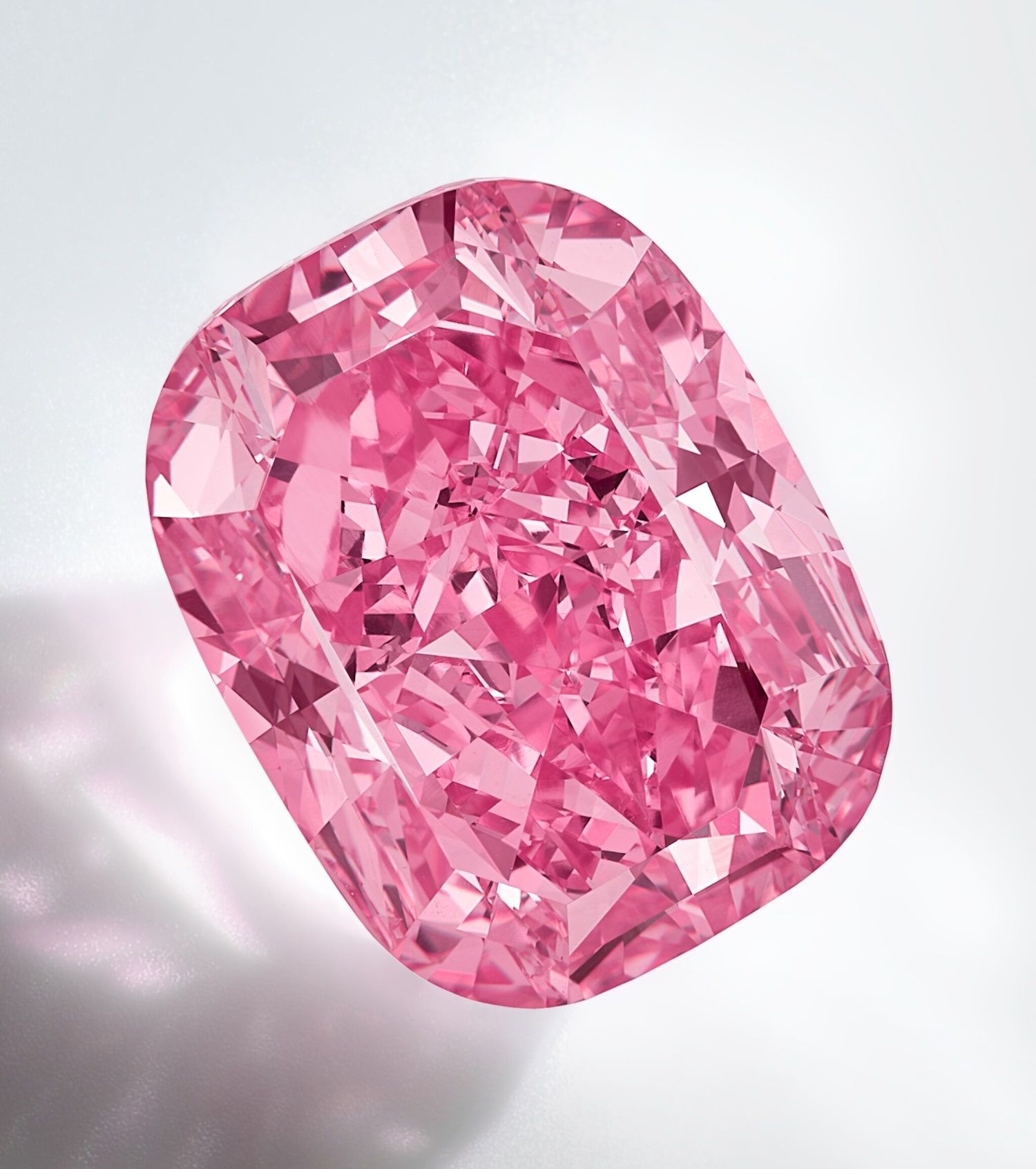
The Eternal Pink came from a 23.78-carat rough cut mined by De Beers at the Damtshaa mine in Botswana. Weighing 10.57 carats, the cushion-cut internally flawless fancy vivid purplish pink diamond is, according to auction house Sotheby’s, “the most vivid pink diamond ever to come to market.”
The fancy vivid is the highest grade of intense colour achieved by only 4 per cent of pink diamonds, reported CNN at the time of the sale.
Before its sale at Sotheby’s auction in New York in June 2023 for USD 34.8 million, the diamond was exhibited in cities such as Dubai, Singapore and Geneva after its first display in Hong Kong.
The Zoe Diamond
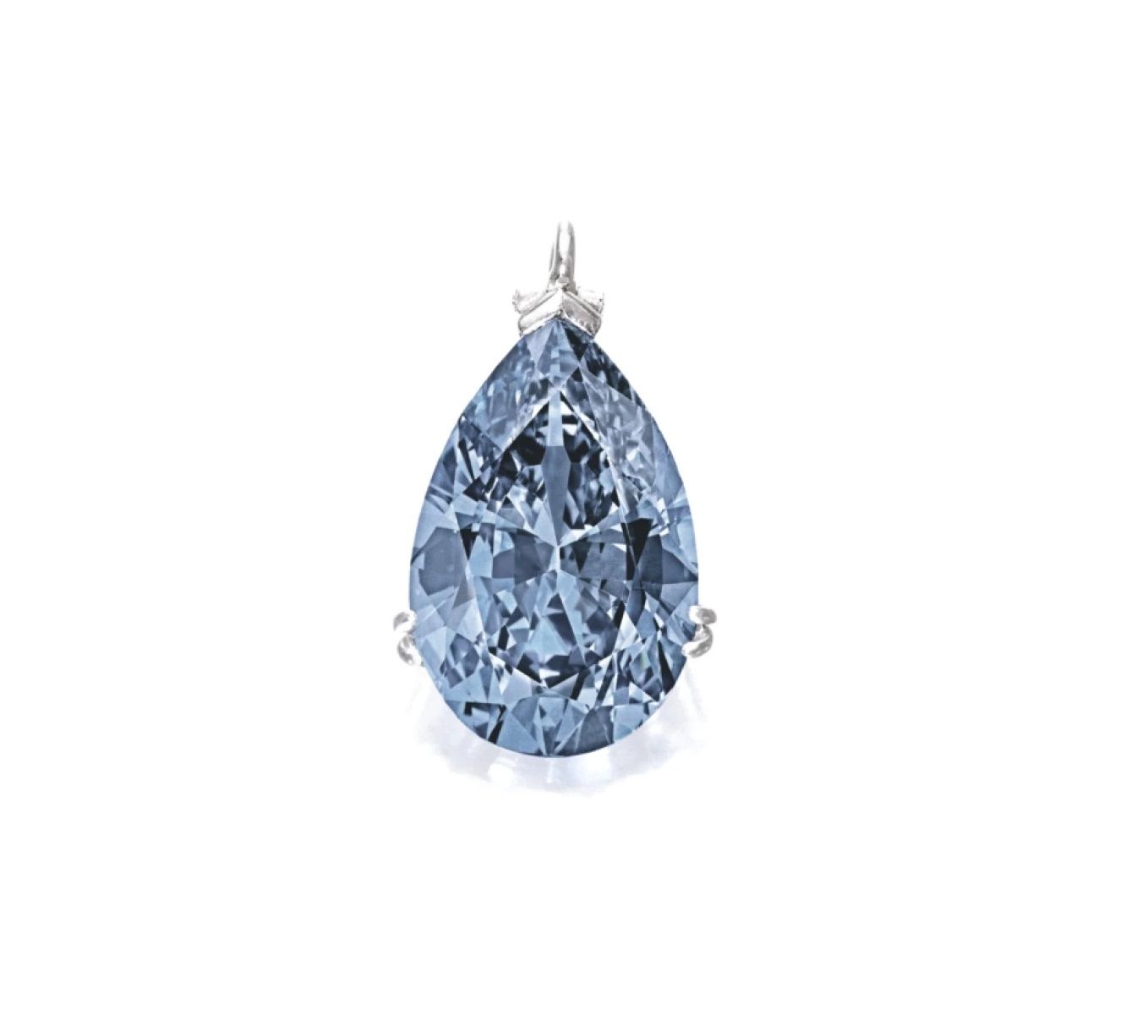
A blue diamond from the Collection of Mrs Paul Mellon was sold for USD 32.6 million at Sotheby’s New York auction in November 2014. It was then renamed The Zoe Diamond by its purchaser, an unnamed private collector from Hong Kong.
The 9.75-carat fancy vivid blue diamond fetched more than twice its high estimate of USD 15 million. At the time of its sale, it set the world record for the most expensive blue diamond ever sold at an auction as well as the costliest price-per-carat for any diamond sold at auction at more than USD 3.3 million per carat.
(Hero and featured images: Anthony Wallace/AFP)

